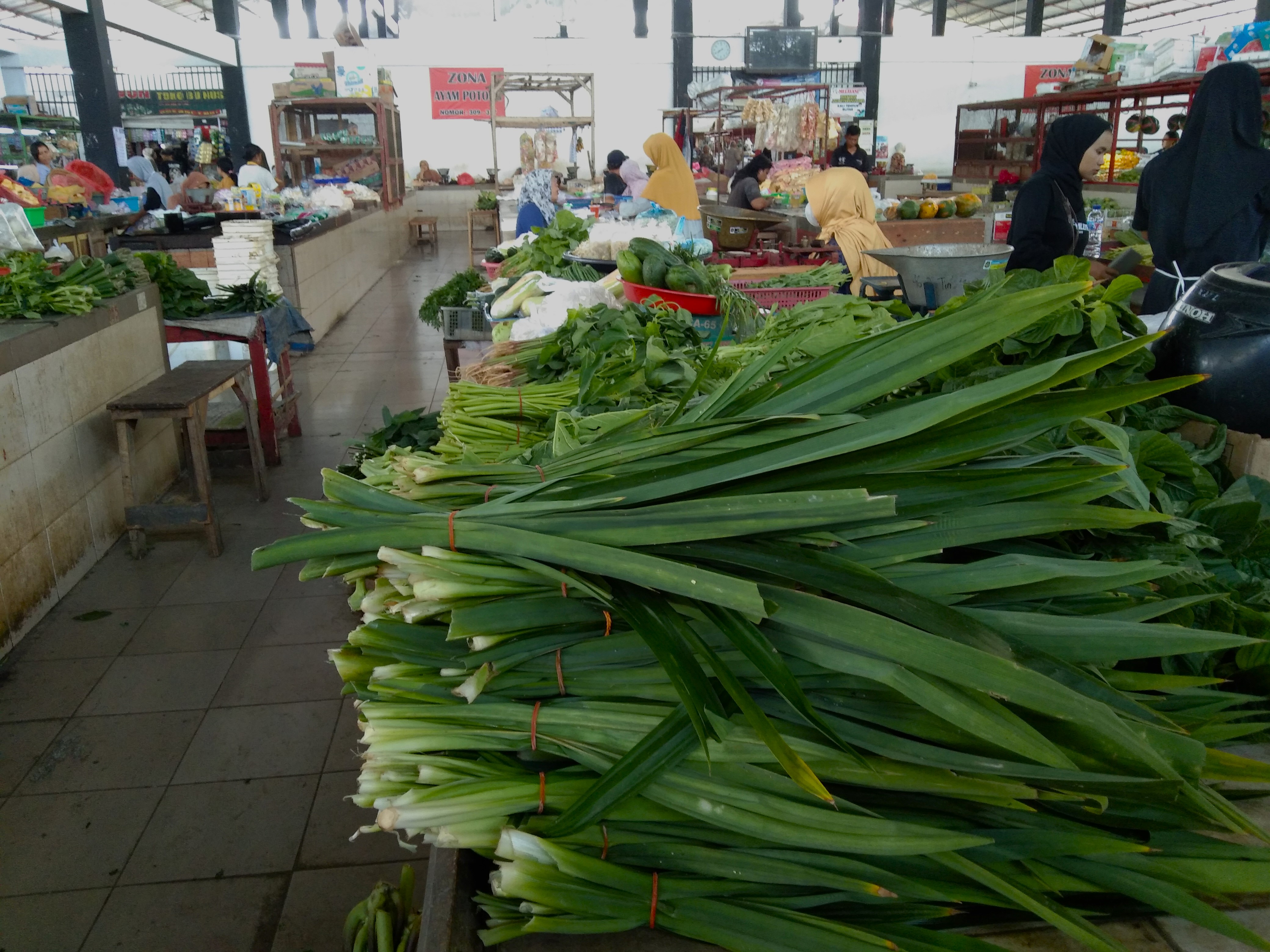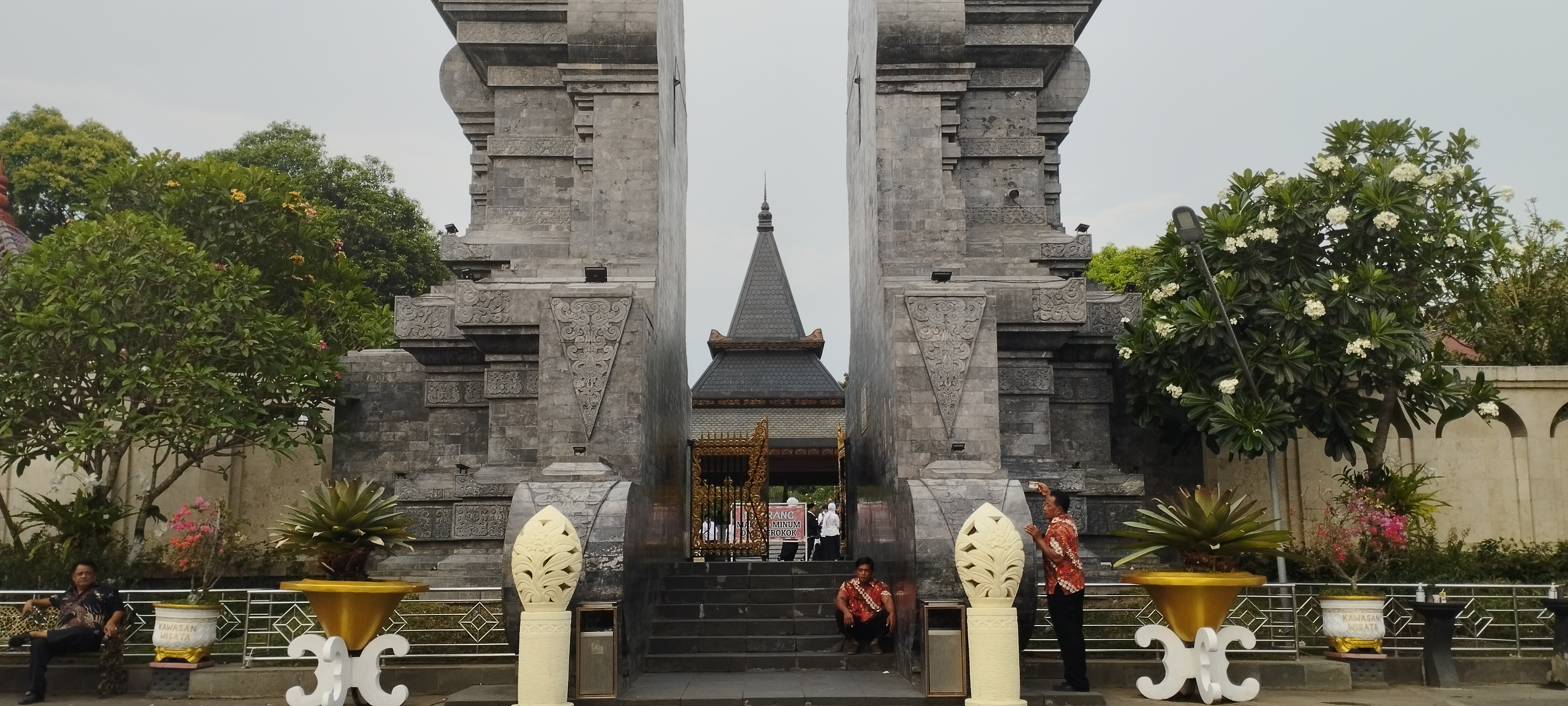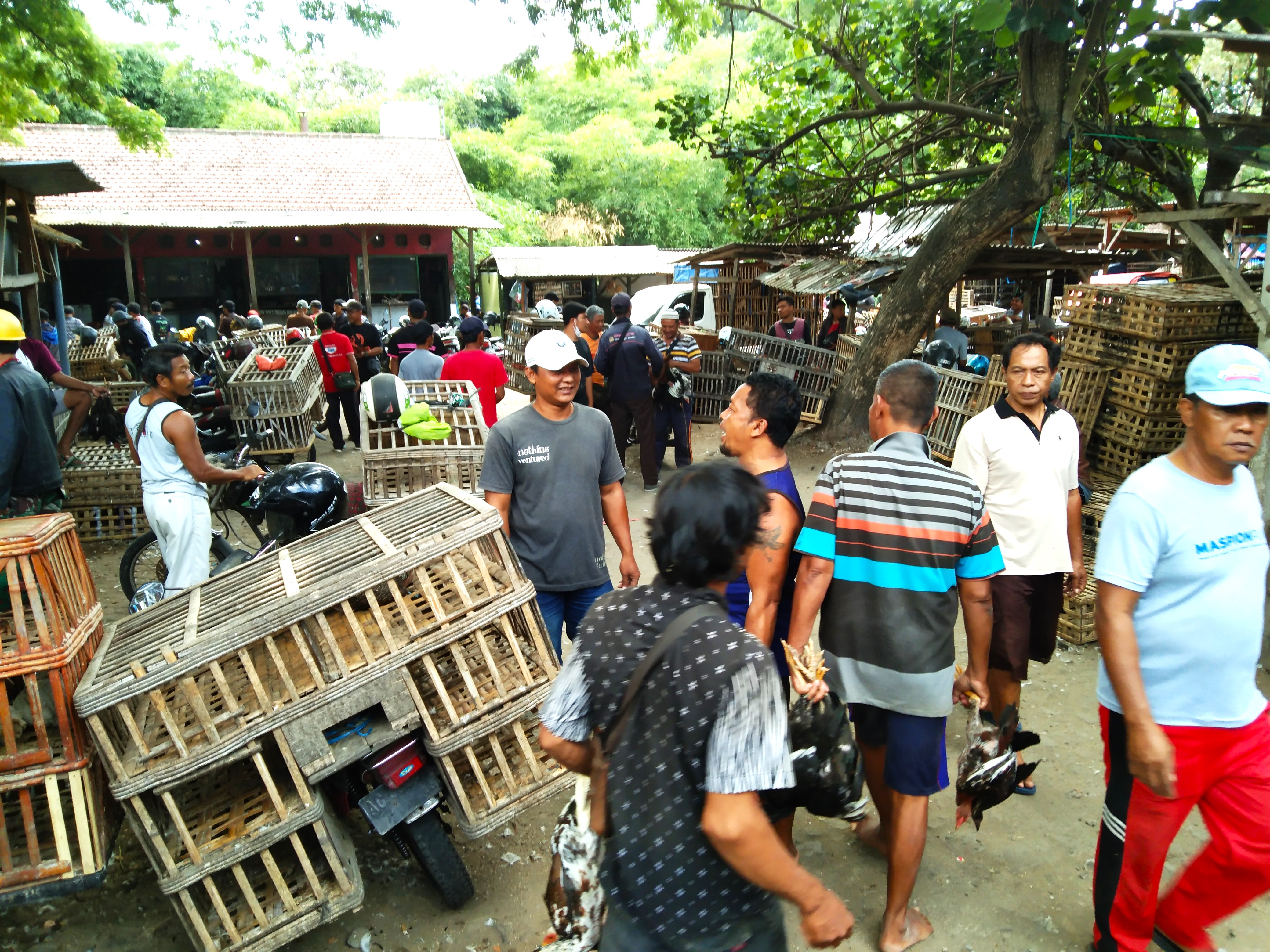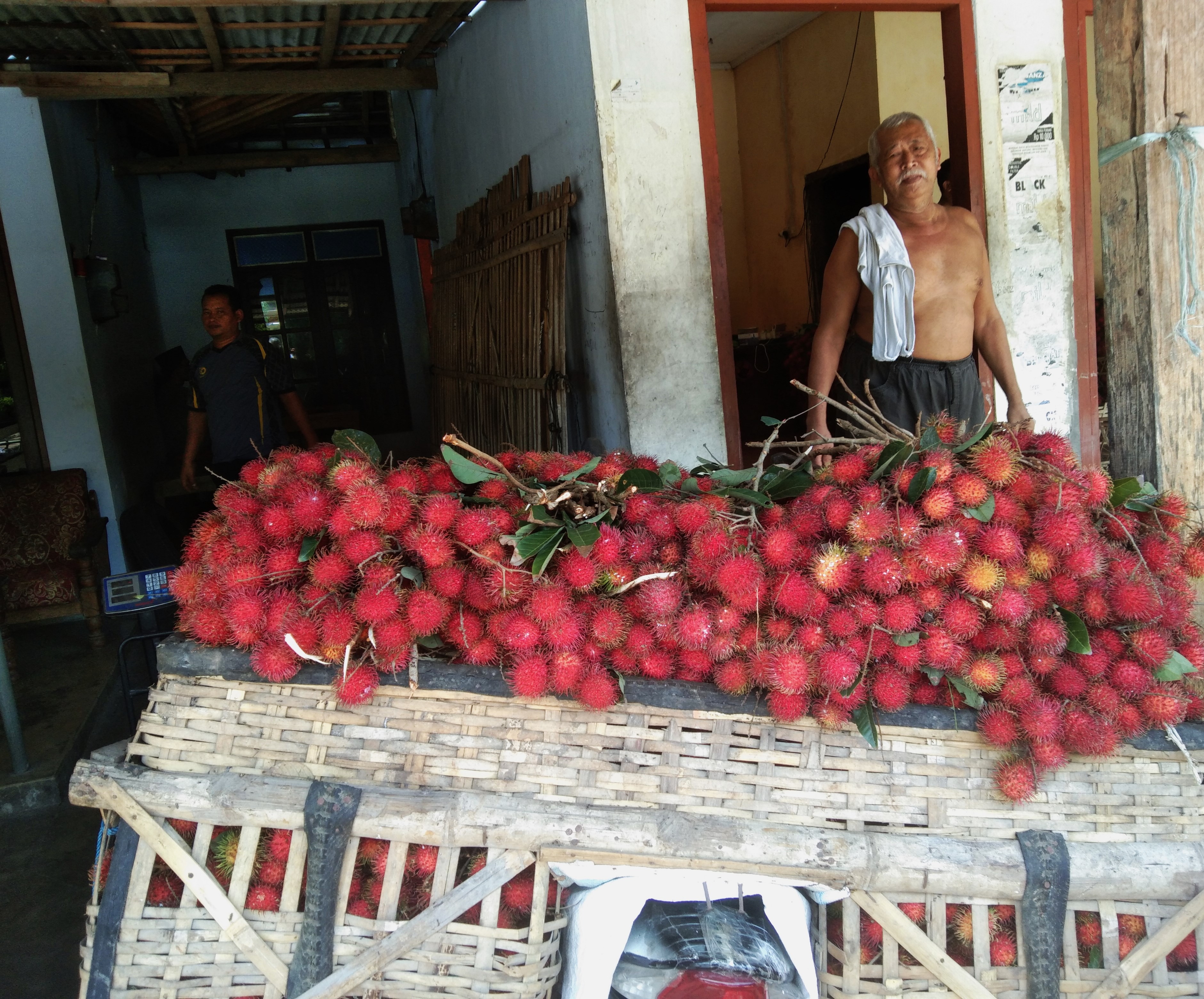
Bumi Bung Karno, the Story of Blitar, a City that Hold a Gerat History
Blitar, a small town in East Java that is famous for its natural beauty, holds a great story about the struggle and history of the nation. This city, which is often referred to as Bumi Bung Karno (Bung Karno's Land), is not just a place on the map, but a silent witness to the long journey of a great figure: the first President of Indonesia, Ir. Soekarno. This city also holds traces of history that connect the past, present, and future of Indonesia.
Amidst the density of modern life, Blitar still maintains its historical heritage. The city is located about 150 kilometers south of Surabaya, with charming natural scenery, such as mountains and green rice fields. Blitar, for many people, is a city known for its courage in fighting for Indonesian independence, but for the Indonesian people, Blitar is the place where the story of a son of the nation who would later become the Father of the Proclamation of Indonesia began.
The city of Blitar, located at an altitude of 167 meters above sea level, has a cool climate. The city's spatial planning is also comfortable as a stopover for travelers who want to get to know the figure of the Proclaimer better. Because all of Bung Karno's struggles have become the landscape of this city's historical tourist destinations. Starting from his childhood home, his final resting place to various collections of Bung Karno's literature and paintings which are neatly displayed at the Bung Karno National Library.
To get to Blitar City, travelers can take the train and get off at Blitar Station. Or if you take a plane, SabatoKaliwuan can pick you up at Juanda Airport, Sidoarjo. With a private car, the trip to Blitar City takes about four hours.

Pasar Pon, Local Market in Blitar
The area of Blitar City is around 32.58 KM² which is divided into three sub-districts. Namely Sananwetan, Kepanjenkidul and Sukorejo Sub-districts. Cycling around "kutho cilik kang kawentar" will give a deep impression. Travelers will encounter the activities of city residents who adapt to modernity, but still maintain the local wisdom that exists. Cycling is the most enjoyable way to get around Blitar City.
After visiting Bung Karno's cemetery, the next cycling destination is Pasar Pon. Here travelers can witness the Traces of Time and Local Wisdom in Blitar City In the heart of Blitar City, a timeless market stands strong, holding a story of a simple yet meaningful life.
Pon Market, which has been established since 1920, is not just a market for buying and selling transactions, but also a meeting place for souls who know each other in the depth of togetherness. This market, with all its hustle and bustle, is a silent witness to the changing times, but still maintains the authenticity of a simple way of life.
Pasar Pon is not just a physical market; it is a social space full of human interaction, where traders and buyers meet in a space that is more than just a transaction. Here, local wisdom is not something that is expressed in formal words, but in the way of speaking, greeting, and paying attention to each other. There is something warm in every meeting in this market, like a cup of tea that is brewed with full flavor, full of closeness.
Every morning, when the first light begins to touch the simple roofs of the market, Pasar Pon begins to rise from its slumber.
Traders open their stalls, arranging their wares with great care. From fresh vegetables, freshly caught fish, to Blitar's signature batik cloth, every corner of this market is filled with the nuances of life that feel real. Here, there is no sense of rush, because time seems to move slowly, giving everyone space to talk, laugh, and sometimes exchange stories.
Local wisdom is evident in the way traders and buyers interact. There is no stiff or disrespectful negotiation. When a buyer approaches a chili sauce seller's stall, for example, the buyer will be greeted with a friendly greeting, "Nggih, how are you, mbak? Sampun wayahe belanja, niki, the chili sauce is homemade, it's delicious!" Traders, who have known their buyers for a long time, know very well the tastes and habits of the people who come to their stalls. In that simple sentence, there is a sense of warmth that binds them, a communication that is deeper than just a transaction of goods.
At Pasar Pon, the relationship between traders and buyers is not only about money, but also about sharing stories, sharing time, and sharing life.
This local wisdom is also evident in the way they communicate without words, simply with a smile or a wave of the hand. When a buyer is familiar enough with a trader, the closeness is established in silence. Sometimes, just by looking into each other's eyes, they can understand each other. A mother who wants to buy vegetables from her regular trader only needs to look for a moment at the vegetable cart, and the trader will immediately understand what she wants, then take it with skillful hands.
The most impressive thing about Pasar Pon is how it depicts a harmonious life. Although the market is crowded, noisy, and filled with various goods, there is no biting sense of haste. Everyone walks slowly, giving each other space to interact. Even though there are differences between traders, they still show mutual respect. Sometimes they share information with each other, about the changing weather, or the fluctuating prices of ingredients.
There is also a spirit of mutual cooperation that is woven into this market.
When a trader has difficulty carrying his merchandise, the neighbor next door will voluntarily help. Without a request, without a word, there is only a sincere intention to lighten each other's burdens. Like a symphony created without written notes, the communication between the residents of this market is so natural and full of depth.
In every corner of Pasar Pon, life goes by with an unspoken yet palpable rhythm. This market is not only a place to transact goods, but also a place for human interaction, where the values of togetherness, local wisdom, and mutual respect become the common thread that binds them. There, traders and buyers not only exchange money, but also share stories, share feelings, and share life. That is the true meaning of Pasar Pon in Blitar City — a space that fosters warmth in every conversation and step.

Bung Karno's Cemetery “Respect for the Proclaimer”
Of course, one of the main attractions of Blitar is the Bung Karno Cemetery (MBK), located in the Sentul area, Blitar. Every year, thousands of visitors come here to pay their respects to Soekarno, the Proclaimer and the first President of the Republic of Indonesia. Bung Karno's cemetery is a symbol of the tireless struggle for Indonesian independence. There, under the shade of shady trees, lies a leader who has recorded a glorious history in the red and white pages of this nation.
However, this cemetery is more than just a hero's final resting place. Around it, there is the Bung Karno Heroes' Cemetery which is often a place of contemplation and reflection for anyone who comes. Visitors do not only come to pray, but also to reflect on the values inherited by Soekarno: unity, independence, and the spirit of mutual cooperation.
Soekarno's cemetery has united all ethnic groups and castes in Indonesia without distance and gap. Both the leaders of this country, officials, businessmen to ordinary people, kneel in the same place. They come from all over the archipelago, to kneel in front of his tomb to pray for the safety of the nation. Both the leaders of this country, officials, businessmen to ordinary people, kneel in the same place
A number of monuments and inscriptions around the cemetery also serve as reminders of the great historical footprints that Soekarno once carved. Here, we can see how the city of Blitar, despite its small size, still has a big role in the long journey of Indonesian history.

Dimoro Is A Traditional poultry and livestock Market: “Bringing Wisdom to Life in Traditional Transactions”
At the foot of Mount Kelud, among the expanse of fertile rice fields, there is a market that holds a thousand stories about life that continues to turn. Dimoro Animal Market, located in the Blitar area, is a living witness to a timeless tradition—a market that every morning presents a view of innocent life, full of color, and warmth, where transactions are not only carried out with money, but with simple but meaningful glances, smiles, and body language.
This is where the world of human and animal encounters, between traders and buyers, between the old and the new, blending in the unhurried rhythm of life. Dimoro Animal Market is not just a place to buy and sell, but a space where village life blends with local wisdom that has been rooted for a long time. Every corner offers a story about tradition, belief, and the simplicity of life that is full of respect for nature.
As dawn began to break, the Dimoro Animal Market began to pulsate.
Traders with familiar faces began to arrange their merchandise. Some brought cows, goats, chickens, and even ducks, which were carried carefully, as if these animals also felt the vibrations of life that were taking place. The smell of the soil wet with morning dew, the noisy sounds mixed with the sighs of animals impatient to make transactions, all blended in natural harmony.
But, despite the bustling and activity of the market, there was a deep silence in the way the traders spoke. There were no glares or shouted words. Everything took place in a characteristic sincerity. An old cattle trader shook his head, smiling slightly, as he stared at the large bull in front of him. "This is a good cow. Wis is well maintained, miss. Usiae luwih saka telu year," he said in a deep voice full of meaning.
His wrinkled face holds a story, which can be read without words. In that simple sentence, there is the pride of a farmer who knows how to take care of his animals. He speaks not only about the price, but also about responsibility and affection for living beings. Buyers who come, with calm footsteps, will approach and examine the cow. There is no shouting of prices or stiff bargaining. Instead, there is an exchange of meaningful glances, an unspoken but understanding communication.
At the Dimoro Animal Market, every face that comes brings its own innocence. There is no anxiety or tension, only a sense of mutual trust embedded in the local culture. In this market, transactions are not just about numbers, but more about the meeting of two worlds that respect and understand each other. Traders and buyers interact in an unhurried manner, as if time is a friend who always gives space to get to know each other.
One of the characteristics of a traditional animal market like Dimoro is how transactions are carried out in a very humane manner. Traders will approach buyers with a friendly attitude, speak humbly, and never rush. "Niki, a healthy goat. You have to take good care of it, sir. You won't lose out," said a goat trader, while hugging his fat and healthy pet. The sentence flowed so softly, but was full of the impression of closeness that had been established between them.
On the other hand, buyers who come with the intention of getting a good animal, will often nod slowly, talk carefully, and judge not only from the price, but also from the condition of the animal itself. Bargaining in this market is not about who wins or loses. It is about building a mutually beneficial relationship, about an understanding that is built over a long period of time, and about trust that grows in every transaction.
Transactions at the Dimoro Animal Market are like a dance that is not rushed, but still achieves its goals in an elegant way. There is no pressure, no urgency.
Everything runs in a very natural rhythm, like a farmer planting seeds and waiting patiently for his harvest.
There is something very profound about the traditional transaction at this animal market—something that cannot be explained with too complicated words. This market teaches us that life does not always have to be running after time. Sometimes, the most important thing is to respect each other and give space for a relationship to develop without having to be forced.
In the end, Dimoro Animal Market is more than just a place to buy and sell animals. It is a place where tradition survives in simplicity, a place where innocent faces speak in a language that is unheard, but very much felt. In this market, we are taught to appreciate the values of life that exist, and to never forget that every transaction is about relationships, about mutual trust that is built over a long period of time, about the warmth that exists in every corner of this simple market.
Like other livestock markets in Indonesia, Dimoro Market also has “dino pasaran”. Namely, days determined by agreement between traders as days to offer each other livestock that they will sell. In Dimoro Market, the market days are Pon and Legi. In a week, these two days in the Javanese calendar, the market situation will be more crowded.

Blitar City Known of Rambutan and Ananas
Blitar, a city located in East Java, is famous not only for its rich historical heritage, but also for its extraordinary natural wealth. One of the most proud natural wealth is the rambutan fruit, which has given Blitar the nickname "Rambutan City." Rambutan in Blitar has a very special quality, thanks to the volcanic soil culture resulting from the eruption of Mount Kelud. This fertile and mineral-rich soil provides very supportive conditions for the growth of rambutan fruit, especially the "Binjai" variety, which has an extraordinary taste.
The eruption of Mount Kelud thousands of years ago left traces of volcanic soil that is very rich in nutrients. This soil is ideal for fruit plants, especially rambutan, which requires soil with a high mineral content to grow well. Since then, Blitar has become one of the most fertile places for rambutan, producing fruit with unmatched characteristics. One of the most famous rambutan varieties in Blitar is the "Binjai" variety, which has a larger size, yellowish-red skin, and long, thick fruit hairs. However, what is most striking about the Blitar rambutan is the taste and texture of the fruit flesh which is so special.
Rambutan Binjai from Blitar is known for its very thick, juicy flesh and has an incredibly sweet taste. When eaten, the sweet sensation is immediately felt and refreshing on the tongue. The thick flesh provides a chewy taste, as if it contains the natural taste of fertile nature. The high water content makes this rambutan very fresh and suitable to be eaten as a refreshing dessert, especially in the summer. The special taste is not only due to the quality of the fertile soil, but also because of the cultivation method carried out with great care by local farmers. Blitar farmers understand very well how to utilize this natural wealth by keeping rambutan plants healthy and well-maintained.
Every year, Blitar becomes a destination for rambutan fans and tourists who want to enjoy the specialness of this fruit. In Blitar markets, piles of Binjai rambutan always tempt buyers with their bright red color and large shape. The distinctive sweet taste is the main attraction that makes people want to buy more. In addition to its superior taste, Blitar rambutan also has a deep social meaning for its people. For farmers, rambutan is not only an economic commodity, but also a symbol of pride and regional identity. The rambutan harvest season in Blitar is always celebrated with great joy, becoming a time awaited by all residents. At that time, various events and festivals are often held, to celebrate the abundant harvest and honor the hard work of the farmers. For tourists who visit, they not only get the opportunity to taste delicious rambutan, but also feel the warmth and togetherness of the Blitar community in celebrating their natural wealth.
Rambutan Blitar, with its sweet taste and thick flesh texture, is not only a local pride, but is also widely known in various regions. The quality of this rambutan has raised the name of Blitar as one of the best rambutan producers in Indonesia. As the "City of Rambutan," Blitar has proven that the fruit grown in this mineral-rich volcanic soil has unmatched quality. Rambutan Blitar is not just a tropical fruit, but also a symbol of the harmonious relationship between nature, tradition, and the people who work hard to utilize it.
For anyone visiting Blitar, it would not be complete without tasting the typical rambutan from this region. The natural sweetness produced by the volcanic soil of Mount Kelud will provide an unforgettable experience. Rambutan Blitar is not only tempting to the taste buds, but also holds stories about the land, history, and culture that surrounds this city. With all its specialties, Blitar continues to maintain the nickname "Rambutan City" and remains one of the best places to enjoy rambutan with a very distinctive and alluring taste.
Experience Of Making Craft
The cycling adventure around Blitar City will be memorable with the experience of making traditional crafts made by workshops in Blitar City. SabatoKaliwuan will invite travelers to visit the center of traditional children's toy crafts made from wood. One of the traditional toy crafts that is in great demand is Jimbe.
Jimbe is a traditional musical instrument made of wood, at the end of which a round hole is made. Then the hole will be closed using a piece of animal skin, then tied tightly. The strength of the rope will affect the loudness of the Jimbe's sound when hit with the palm of the hand. To make Jimbe look attractive, craftsmen usually decorate it with various hand paintings. Travelers can also paint Jimbe that has been given a motif by applying colored paint.
Not only Jimbe, travelers will also learn to make various traditional wooden toys that are simple and do not take long. Here, travelers will find a new experience that is very enjoyable, and may not be found in other tourist destinations.
